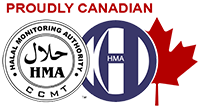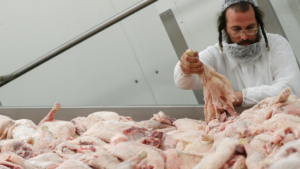Food safety is a major issue for all consumers worldwide since it leads to a healthier lifestyle. Food safety is defined as having good, high-quality food and preventing it from being polluted and harmful to eat. Consumers are increasingly concerned about food safety, health, naturalness, enjoyment, convenience, information and ethical issues, and environmental friendliness. According to the World Health Organization (WHO), millions of people contract foodborne diseases every year. More than 250 foodborne illnesses have been found, with the majority of them leading to infections caused by bacteria, viruses, and parasites. Toxic poisons and chemicals can potentially infect foods, resulting in foodborne diseases.
To effectively manage foodborne infections and maintain food safety, many nations have built expanded monitoring systems. However, it seems improbable that the number of foodborne illness cases continues to rise yearly. There are a variety of things that might affect food safety. There are only a few changes in agricultural food production, new food processing systems in industries, restaurants, and food stalls, longer distribution networks, and novel food storage technologies. Food contamination will very certainly rise as food manufacturing chains lengthen. At the same time, several indicators or measures are employed to determine the food’s deliciousness and safety.
A government usually establishes a food safety standard to monitor food safety and reduce the occurrence of foodborne diseases. The food and beverage sector in Canada is developing food processing standards as a tool to monitor and manage food safety. The purpose of a food standard is to safeguard customers against unethical food manufacturers in the preparation and usage of food. Before purchasing food goods, 85.7 per cent of Muslim consumers look for the halal emblem on the box. More than 78.7% of Muslim customers feel that items bearing the halal mark are guaranteed to be halal and that the badge aids them in making decisions about food purchases. When Muslim customers are unsure about the place of origin, they will look for a halal label on the product’s packaging. They are more confident in purchasing food goods because of the halal emblem. According to this factor, consumers pay attention to the halal logo in many ways, and they are typically positive about the halal logo on food goods.
HMA Canada wants all Halal meat and product buyers to be confident that the meat and items are Halal. Consuming Halal meals is one of the essential pillars of Islam, without which our acts and prayers are negatively affected and are considered to go unanswered. All Muslims may be sure that the meat they consume is genuinely halal in Toronto because it has gone through a defined methodology and has been certified at each step of the supply chain. Inspectors and monitors are employed by HMA and work to run the unique HMA monitoring system in various towns and cities daily.
HMA also collaborates with some abattoirs and slaughterhouses. These vendors are continually regulated and work under HMA guidelines and inspection. HMA also monitors many retail locations (butchers, restaurants/takeaways) daily, a complete monitoring system. Food safety and health consciousness are also crucial factors for Muslim consumers. More than 78.1 per cent of Muslim customers feel that eating halal meat in Toronto is safer, and roughly 70.6 per cent believe that purchasing halal food is a healthier decision. Around 62.1 per cent of Muslim customers relate the halal label with the cleanliness of the food product and its suitability for consumption. The findings show that consumers are aware of the underlying benefits of halal products and the religious responsibility of eating halal food. This demonstrated that Muslim customers are worried about halalness and prioritize it when purchasing food goods.
On the other side, Non-Muslim customers are aware that non-Muslim customers wearing the halal badge are halal. For Muslim customers, food safety and health awareness are particularly critical. Over 78.1 per cent of Muslim consumers believe that eating halal food is safer, and 70.6 per cent believe that buying halal food is healthier. Approximately 62.1 per cent of Muslim clients associate the halal certification with food product cleanliness and appropriateness for ingestion. According to the data, consumers are aware of the underlying advantages of halal products and the religious obligation of consuming halal food. This showed that Muslim clients are concerned about halalness and place a premium on it when purchasing meals.
Muslim customers increasingly want confirmation that the food and drinks they buy have been prepared to comply with Islamic preparation rules. Halal ingredients must be used or sourced with care in the food production industry. Manufacturers should take the initiative to track down their components’ origins and processing methods.
Marketers and importers of halal-certified manufactured food goods must verify that their products into the nation are halal-certified. Halal principles must be taught to food manufacturers and the necessity of these food preparation and processing standards. Halal processing may be enhanced by overall supervision by official authorities and by the integrity of people participating in the food production businesses, not only by printing a single emblem on the food product.



